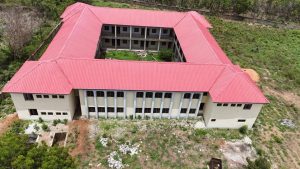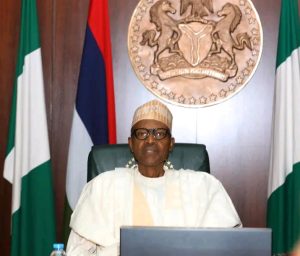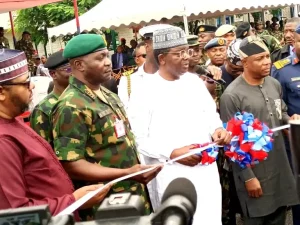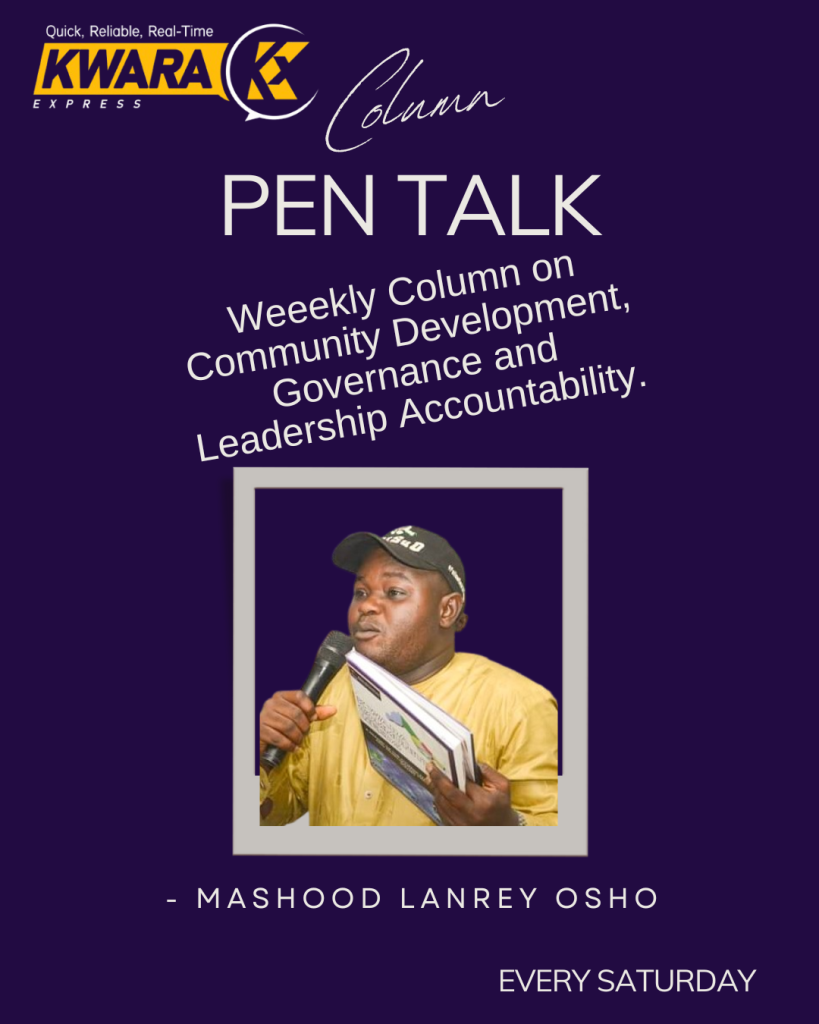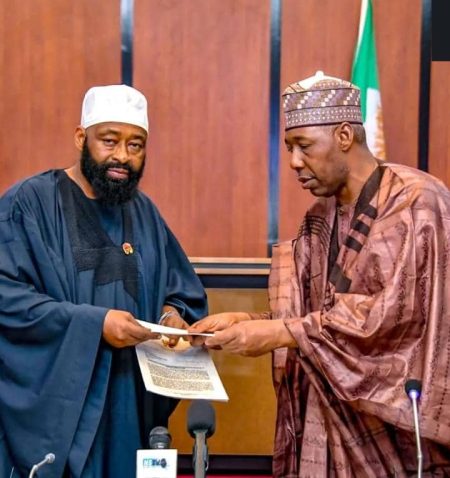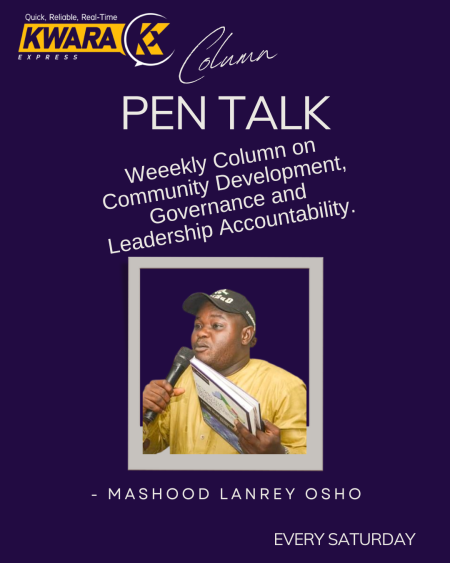Fellow Nigerians, I must confess that my initial plan for this week’s column was to delve into the contentious tax reform bill, which has sparked intense debate among analysts, lawyers, lawmakers, and well-meaning Nigerians. Having thoroughly read the bill from start to finish, I had already penned over eight paragraphs analyzing its provisions and grey areas.
However, I find myself preoccupied with the controversy surrounding Dele Farotimi and Afe Babalola, SAN. As an activist and public policy analyst, I am compelled to speak out against injustice, and this issue has caught my attention.The controversy surrounding Dele Farotimi and Afe Babalola, SAN, has caught my attention, and as an activist and public policy analyst, I feel compelled to speak out against injustice. The issue at hand is the allegation that Dele Farotimi’s book defames Afe Babalola’s character, leading to his arrest in Lagos and subsequent transfer to Ekiti State.
What’s striking is that both parties are lawyers, with Afe Babalola being a senior advocate of Nigeria (SAN) and a respected figure in the legal community. Despite this, I expect Afe Babalola to have pursued legal action through the courts rather than resorting to police intervention .This incident raises concerns about the misuse of power and the potential for intimidation. It’s worth noting that similar situations have arisen in the past, such as when former President Obasanjo wrote “My Watch,” which contained unflattering remarks about Atiku Abubakar. Rather than pursuing legal action, Atiku and others responded through public discourse, setting the record straight.
As we navigate this situation, it’s essential to consider the precedent we’re setting for future generations. The Nigerian Bar Association (NBA) has a critical role to play in ensuring that the legal process is upheld, and I’m confident they will intervene in this matter .The Nigerian Bar Association (NBA) must intervene promptly to address the escalating situation between Afe Babalola, SAN, and Dele Farotimi. The spectacle of security operatives from the same agency, and even different organizations, clashing with each other on social media is already damaging to our justice system.
Now, with a senior lawyer pitted against a junior lawyer, the situation is further eroding the credibility of our justice system. Afe Babalola, SAN, as the elder statesman, should have exercised restraint and opted for a more measured approach. Instead, his decision to use the police to arrest Dele Farotimi has only served to amplify the issue.Dele Farotimi has publicly stated that he stands by the contents of his book, and if Afe Babalola, SAN, genuinely believes the allegations are false, it begs the question.why didn’t he file a court case instead? By detaining Dele Farotimi, Afe Babalola, SAN, may inadvertently boost book sales, as more Nigerians become curious about the controversy and seek to read the book for themselves.
Lawyers have been engaged in a debate regarding the jurisdiction for Dele Farotimi’s trial. However, the fundamental facts remain unchanged. Dele Farotimi authored the book in Lagos, is based in Lagos, and all the allegations leveled against Afe Babalola, SAN, pertain to his time in Lagos, including his law chamber.Given these circumstances, attempting to try Dele Farotimi in Ekiti serves no purpose. Such blatant disregard for due process and jurisdictional integrity is unacceptable in any developed country. As a society, we must renounce these illegal tactics to create a better future for the incoming generation.
I wrote my second book last year, focusing on legislative effectiveness, with the goal of guiding the Kwara State House of Assembly. Unfortunately, the 9th KWHA fell short of expectations, failing to represent the people’s interests. My book exposed their weaknesses and provided a framework for improvement. I even invited them to the book launch, but none attended.Some individuals have suggested that my writings about the Kwara State House of Assembly could lead to my arrest. My response is simple. only if I lied about them. Interestingly, the governor once praised Honorable Rasaq Owolabi at a program in Moro LGA in kwara state sometimes last year before general election, acknowledging that only he and a few others were performing well, while the majority were not. This fact is undeniable, and I stand by my words.
It’s worth noting that about fifteen members of the 9th KWHA did not return for the 10th Assembly, a clear indication that the 9th KWHA was the worst in Kwara State’s history. Writing a book shouldn’t make someone a target for arrest or police harassment. Truth is truth, and no one should be intimidated for speaking it.As activists, we have an inherent inclination to react whenever we witness injustice. In my previous article, I recounted how my challenge to a lecturer at the Federal Polytechnic Offa led to my withdrawal from the institution. I also shared that I have received numerous threats due to my organization’s efforts to expose looters at anti-corruption agencies.
In fact, I was the one who went to the agencies to defend the petition and ensure that due process was followed. Paradoxically, the more threats we receive, the more resolute we become in our pursuit of justice. This is an integral part of our nature as activists.I firmly believe that nothing can suppress Dele Farotimi’s spirit, and I will continue to emphasize this point.
Three weeks ago, I mentioned the story of Dr. Olu Onagoruwa and Chief Gani Fawehinmi, SAN, two close friends who had a falling out when Dr. Onagoruwa joined the Abacha government, which Chief Fawehinmi strongly opposed. Dr. Onagoruwa later wrote a book titled “The Rebel in Abacha’s Government,” to which Chief Fawehinmi responded by writing another book, “The Lies and Lies of Dr. Olu Onagoruwa.” Instead of resorting to arrest or violence, Chief Fawehinmi chose to address the issues through writing, which is a more constructive and ethical approach.
This approach promotes a culture of intellectual discourse and respect for differing opinions, rather than encouraging enmity and conflict. It’s a shining example of how to handle disagreements and criticisms in a civilized manner. By choosing to rebut Dr. Onagoruwa’s claims through writing, Chief Fawehinmi demonstrated a commitment to the values of truth, fairness, and respect for others.
In the context of the current controversy surrounding Dele Farotimi’s book, this story serves as a reminder that there are better ways to address disagreements and criticisms than through arrest or intimidation. As Dele Farotimi’s book has sparked important conversations about the Nigerian justice system, it’s essential to approach these discussions with a commitment to intellectual honesty, respect, and constructive dialogue.




